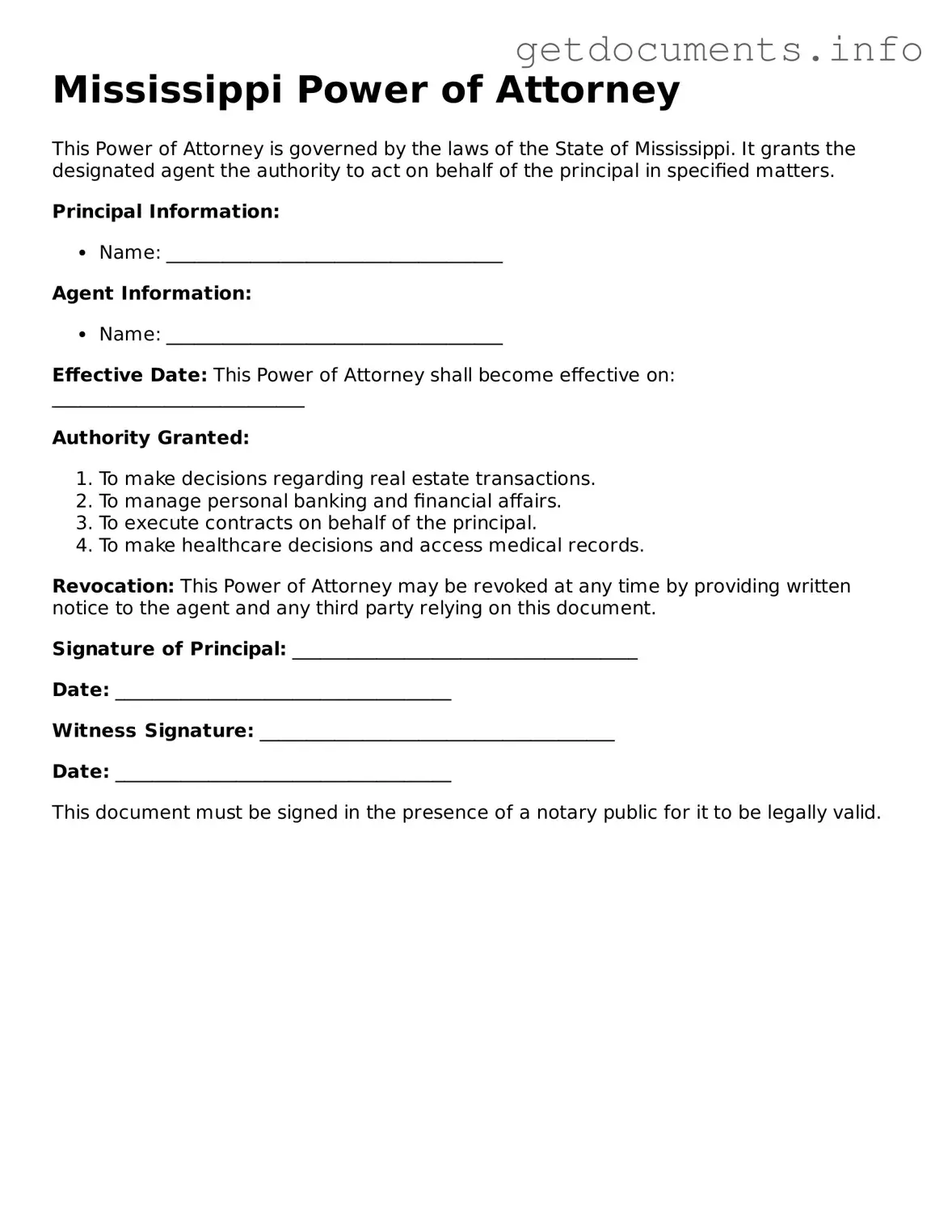Free Power of Attorney Template for Mississippi
A Mississippi Power of Attorney form is a legal document that allows an individual, known as the principal, to appoint someone else, referred to as the agent, to make decisions on their behalf. This form can be used for various purposes, including financial matters or healthcare decisions, depending on the specific needs of the principal. Understanding how to properly fill out and utilize this form is essential for ensuring that your wishes are respected.
To get started, fill out the form by clicking the button below.
Access Power of Attorney Editor

Free Power of Attorney Template for Mississippi
Access Power of Attorney Editor
Got places to be? Complete the form fast
Fill out Power of Attorney online and avoid printing or scanning.
Access Power of Attorney Editor
or
⇩ PDF File
